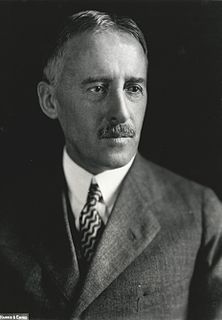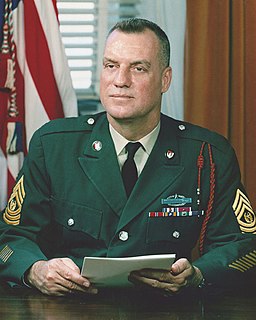A Quote by Henry L. Stimson
It seems as if everybody in the country was getting impatient to get his or her particular soldier out of the Army and to upset the carefully arranged system of points for retirement which we had arranged with the approval of the Army itself.
Related Quotes
There are three ways in which a ruler can bring misfortune on his army: By commanding the army to advance or to retreat, being ignorant of the fact that it cannot obey. This is called hobbling the army. By attempting to govern an army in the same way as he administers a kingdom, being ignorant of the conditions which obtain in an army. This causes restlessness in the soldier's minds. By employing the officers of his army without discrimination, through ignorance of the military principle of adaptation to circumstances. This shakes the confidence of the soldiers.
What the army is doing is cleaning those areas, and the indication that the army is strong is that it's making advancement in that area. It never went to one area and couldn't enter to it - that's an indication. How could that army do that if it's a family army or a sect army ? What about the rest of the country who support the government ? It's not realistic, it doesn't happen. Otherwise, the whole country will collapse.
It took me a moment. I blinked, and suddenly it swam into focus and I had to frown very hard to keep myself from giggling out loud like the schoolgirl Deb had accused me of being. Because he had arranged the arms and legs in letters, and the letters spelled out a single small word: BOO. The three torsos were carefully arranged below the BOO in a quarter-circle, making a cute little Halloween smile. What a scamp.
That was a pretty fine Army that we had in 1965. By 1973, it was in tatters. It was a disgrace to the country and to itself, to its own heritage, really. So it's, you know, the Army belongs to all 307 million of us. It is our common possession, it's our common heritage. As goes the Army, so goes the republic.
There is no denying that unhappiness - even violence - exists in some arranged marriages. Or that some arranged marriages are borne out of cruelty. And part of that six percent global divorce rate can be attributed to the powerful stigma against divorce that's present in countries where arranged marriage is common.
This war is not as in the past; whoever occupies a territory also imposes on it his own social system. Everyone imposes his own system as far as his army can reach. It cannot be otherwise. If now there is not a communist government in Paris, this is only because Russia has no an army which can reach Paris in 1945.










































